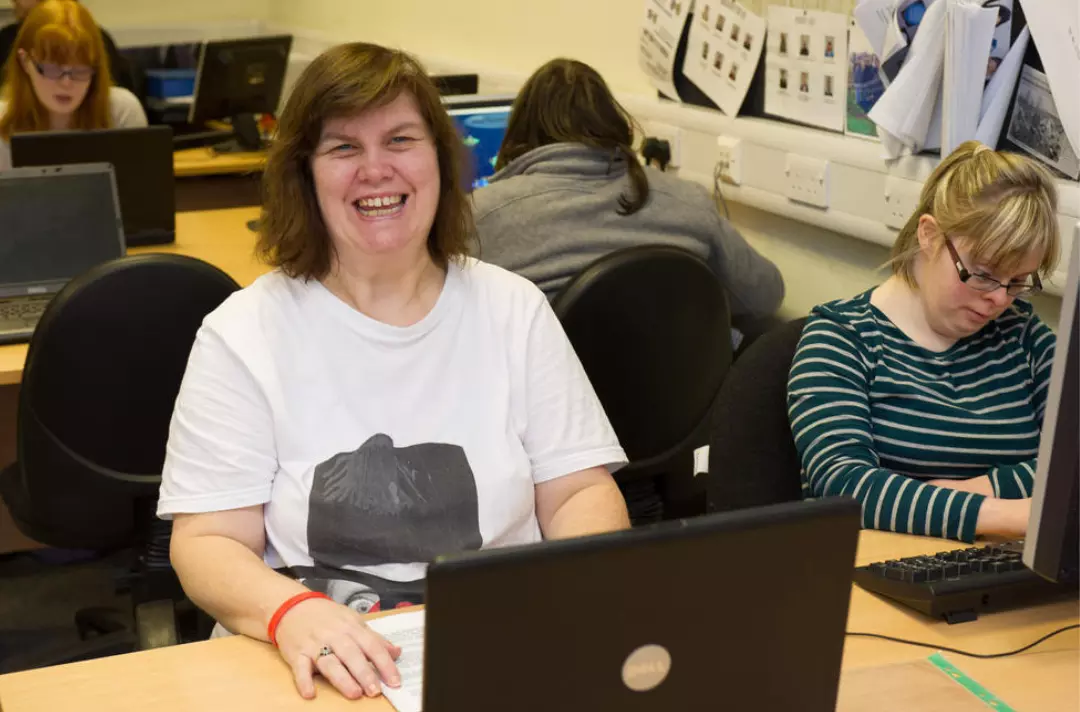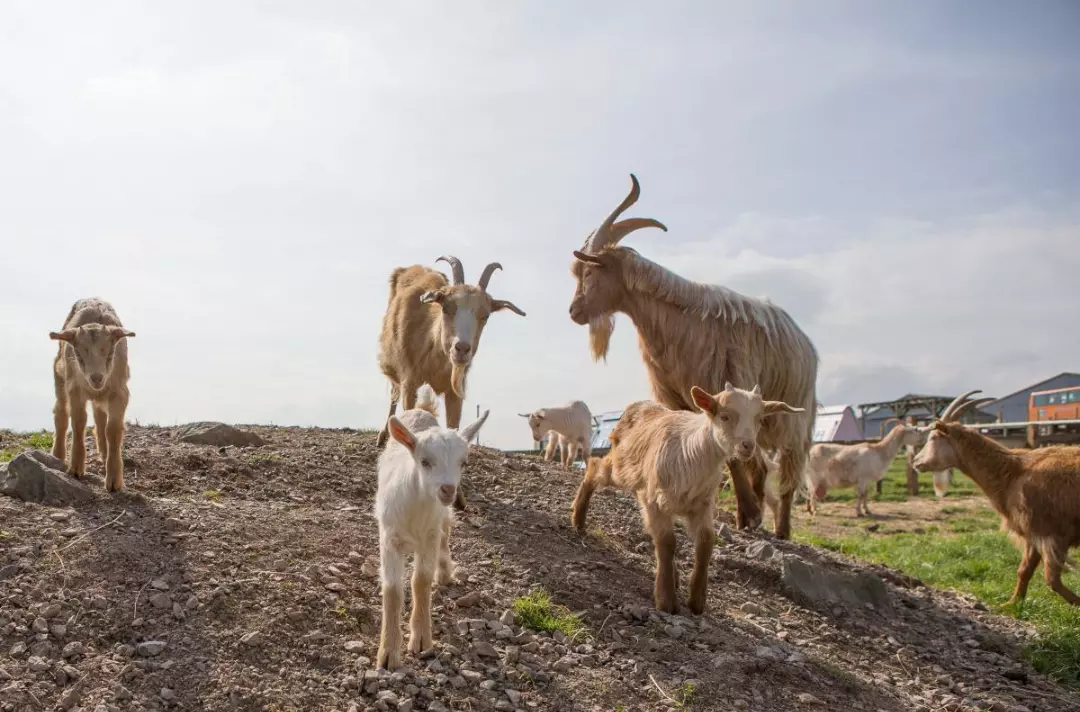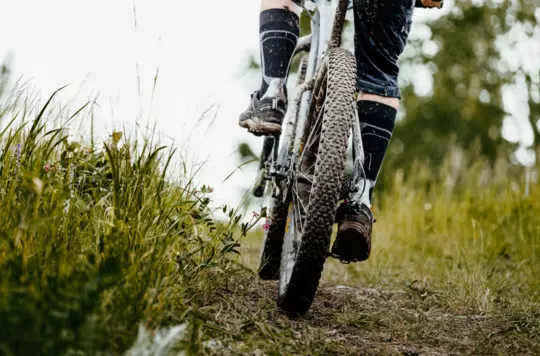17 August 2022
When the Army hosted the Olympics
Emily Bright interviews Ciaran Egan

Ahead of London 2012, a track was built at The Salvation Army’s Hadleigh Farm in Essex to host the Olympic mountain biking event. War Cry’s Emily Bright catches up with estate director Ciaran Egan, who recalls the atmosphere around the global event and reflects on what the Games inspired.
In August 2012, Olympic mountain bike riders raced around the winding cross-country track in search of golden glory. Their trials and triumphs were taking place at The Salvation Army’s 900-acre Hadleigh Farm estate in Essex.
That memorable sporting summer seems a long time ago as I nurse a cup of coffee and shelter from the pouring rain in Hadleigh Farm’s offices. But in my chat with estate director Ciaran Egan, he vividly recalls the buzz of being part of the London Olympics while at work for The Salvation Army.
‘I loved having so many people from all around the world here,’ he says. ‘Our team made everybody feel welcome. We had all the signage in so many languages, and Salvation Army shields to represent the different countries in which we work across the globe.
‘It had a real celebratory feel to it. Some of the teams were staying and training locally, so you’d bump into Olympic teams as you walked around.’
But the impact of London 2012 on Hadleigh Farm has lasted much longer than the competition itself. The track, which is maintained by Essex County Council, hosted World Championship-level events for four years after the Olympics, drawing in 10,000 spectators on a typical racing weekend. Nowadays, it primarily attracts young families.

‘Originally the track was aimed at high-level hobbyist mountain bikers after the Olympics had ended,’ says Ciaran. ‘However, most of our visitors are now from families in our community.
‘We have over 700,000 annual visitors. People not only come out and use the mountain bike track, but also 1,000 runners take part in Parkrun, a 5km race every Saturday. Afterwards they come for coffee, cake and a catch-up in our Hub café.
‘The number of families that make use of the site is huge – it’s certainly not something we envisaged when we started out.’
As a result, the mountain bike track has been adapted to cater for a wider range of abilities. ‘We now have purple trails for those who are complete novices to mountain biking, such as a circular flat trail,’ explains Ciaran. ‘And then people can move on to a green trail, which doesn’t include any significant jumps or inclines, but does take you on to parts of the Olympic mountain bike track.’
But The Salvation Army’s work at Hadleigh Farm estate extends beyond sport into spirituality. Visitors and groups are encouraged to use the grounds to explore and reflect on the Christian faith.
It regularly holds a Muddy Church, which builds relationships in communities through outdoor activities.
‘Muddy Church is aimed at children and families and makes use of nature on site to explore faith,’ Ciaran says. ‘There is a craft activity each time they meet, and the site is their playground.
‘At Hadleigh Farm, we also invite people to come on “wonder walks”. We go out with groups of people and there are points of reflection, where we’ll stop and consider elements of Scripture. There are also self-led trails, which people can go on and explore at their own pace.’
Hadleigh Farm’s faith-based foundation began in 1891, when The Salvation Army bought it as a place where it could train people who were caught up in poverty and give them agricultural and brick- making skills. Nowadays, Hadleigh Farm is home to a training centre for people with additional needs, such as mental health issues or learning difficulties.
‘We help people get closer to the lives to which they aspire,’ says Ciaran. ‘While many things have changed at Hadleigh Farm, that ethos of working with people to help them practically resolve problems themselves remains to this day.
‘Some people need additional vocational skills to get a job. Others need help with life skills such as confidence and having the ability to socialise in new spaces. We come up with individual support plans looking at where they want to go and what we need to do to help them get there.’
Hadleigh Training Centre has groups focused on instruction in landscape management, horticulture, catering and hospitality. While the site’s tearoom are currently closed due to Covid-19 restrictions, Salvation Army staff hope to reopen them when safe to do so and enable the trainees to take charge, as Ciaran explains.
‘What we’ve been working towards is a social enterprise model, with trainees taking ownership over and operating the tearooms – deciding on the menu, and the type of ordering and service there’s going to be. We encourage entrepreneurship, to assist people in developing the skills to run their own business.’
Running since 1990, the Hadleigh Training Centre has already given generations of students the confidence and skills they need to thrive in their chosen career or area of development. Ciaran cites an example of a man who had his heart set on entering the catering industry.

‘He had the core elements of catering nailed down. He didn’t need major input from us, apart from building his confidence. He struggled with simply saying: “Hello, good morning.” So we built up his confidence by encouraging him to work in our tearooms and interact with new people.
‘We were also able to work with some local businesses to give him experience in kitchens, so working in a new place didn’t make him fearful. He was then able to get employment in catering and hospitality.’
The other dimension of Hadleigh Farm, which many may not associate with The Salvation Army, is a rare breeds centre that opened in 2004.
‘It provides a point of interest for people and an opportunity to talk about who we are and how we can work with them,’ says Ciaran.
The rare breeds centre is now home to rabbits, goats, pigs, chickens, ducks, alpacas and sheep. The team use sustainable and environmentally friendly practices.

Ciaran continues: ‘We’ve given over some of the land here to graze with rare breed animals rather than mechanically farm. We also work with other organisations such as the Royal Society for the Protection of Birds (RSPB) and send herds of our animals to graze their land.’
The rare breeds centre attracts young families, who can get up close to, pet and feed some of the animals.
The wider farm contains 600 acres of arable land and 300 acres of organic grassland.
As our time together ends, Ciaran takes me on a tour of the expansive estate, including the distinctive peaks and troughs of the bike track. It strikes me, as he talks enthusiastically about his plans for the future of Hadleigh Farm, that much has developed on the site since London 2012.
The Olympics were a catalyst for change. Perhaps the most lasting and unexpected legacy for Hadleigh Farm, though, has been the links that have been forged between The Salvation Army and the community.
‘If you were to loop back to what the organisers wanted the legacy of London 2012 to be, it was around a sense of community ownership and engagement,’ says Ciaran. ‘And since the Games we have been making a point of running events with the specific aim of nurturing relationships. We want to connect with people.’
- Plan your visit and find out more about Hadleigh Farm Estate: salvationarmy.org.uk/hadleighfarm
Interview by

Emily Bright
War Cry Staff Writer
Discover more

War Cry
Features, comments and reviews with a faith focus.

Heralds
Heralds sell our weekly papers to the public and represent us in local communities. Would you like to join them?

Sport and Wellbeing Resources
Resources for sport and wellbeing.

Sports mission: Be inspired by the Commonwealth Games
Maria Carter shares how the Commonwealth Games in Birmingham is inspiring the Army across the West Midlands.
